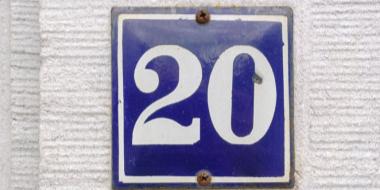Listing Courses and Certificates on your CV
Including certifications on your CV can demonstrate your skills and experience to potential employers and help set your application apart from others. When is it useful to list courses on your CV? That depends on the position you’re applying for, how much space you have on your CV and the stage of your career and in which section of the CV should you list them? Here’s what you need to know.

What Are Certifications?
Certifications essentially prove that you have mastered specific skills and met certain qualifications that pertain to your profession. Certifications are typically awarded by official associations, accredited boards, or other well-recognized experts. Often, you must pay a fee, take a course of some kind, and pass an assessment or final exam in order to earn a certification.
There are many different types of certifications available for various professions, such as:
- NCLEX-RN certification for nurses
- Board certification for surgeons
- CPR/lifeguard/first aid/EMT certification
- Teaching certifications
- Business and accounting certifications
- Online certifications for SEO, marketing, etc.
When Should You Include Certifications on Your CV?
There are three main instances when it’s a good idea to include your certifications on your CV:
If Certifications are Required for the Position
Of course, if a certification is specifically required for the position that you are applying for, you should include that certification on your CV to demonstrate that you are qualified and a good fit for the job. If you don’t list that you have the certification, you may not be considered for the position.
To Demonstrate Relevant Skills or Experience
In some cases, a certification might not be required for the position that you are applying for, but you might still wish to include a certification that shows you have relevant skills and experience. Additionally, some certifications are only available to professionals who have worked a certain number of years in the field, so including such a certification can serve to verify your level of work experience.
Some employers might not require certain skills, but they may give preference to applicants who possess certain desirable skills and experience.
To Supplement Limited Work Experience
Finally, it can be beneficial to list your certifications when you have little or no relevant work experience. For example, if you are a high school student applying for your first job and you obtain a lifeguarding certification, your chances of being hired as a lifeguard increase exponentially. This same concept also applies for college students, recent graduates, and those who are changing careers. Investing in your future by obtaining a certification shows employers that you are dedicated to developing your skills and committed to your success in the field.
For the most part, you will likely only want to include certifications that are directly relevant to the position that you are applying for. However, if you have space left over on your CV, you may wish to include other certifications that may not be directly related but that have still helped you gain transferable skills and experience.
Include relevant courses only
When you’re applying for a project manager role, for example, few employers will care about your pottery course or that you’re a qualified scuba diver. The key is to only include courses that are relevant to the job description and that complement your skills and work experience.
You have a lot of work experience
If you have a lot of work experience, you’ll need to consider whether you have enough space on your CV to list your courses, bearing in mind that a CV should ideally be no more than two A4 pages in length.
While courses can help convince employers of your suitability for the job, it’s your practical experience that counts, so if you’ve had the opportunity to apply what you’ve learnt since taking the course, it’s fine to leave the course off your CV.
Non-recent courses
Courses are only interesting to employers if they are relevant and recent – but there is a caveat. For instance, if you’re applying for a secretarial position, it’s not necessary to list the MS Word course that you completed some fifteen years ago as it will be evident from your work experience that you can type. Not to mention that everyone can use MS Word nowadays and stating this is the same as saying you can read.
On the other hand, if you completed a secretarial diploma, it’s fine to mention it on your CV even if it was a long time ago as it will add value to your application.
Courses that don’t belong on your CV
The courses you list on your CV should present you in a good light. Therefore, avoid listing courses that appear out of the ordinary such as courses for reading tea leaves or communicating with animals telepathically.
The same applies to online courses. While many online courses allow you to develop your skills and build on your knowledge, some recruiters and employers, rightly or wrongly, value professional qualifications (exams taken at university or at an accredited institution) more than online courses.
With this in mind, it’s a good idea to only include online courses from trustworthy training providers, e.g., Hubspot, Udemy, Coursera, etc.
How to list courses on your CV
Where you list courses on your CV will depend on the stage of your career and how much focus you want to place on them:
1. Education
If you have very little or no work experience, then consider listing your course(s) in the ‘Education’ section of your CV, in reverse chronological order.
To boost your application, you could mention any projects you completed while taking your course(s); projects or other assignments show that you’re able to put what you’ve learnt into practice.
Be sure to only include courses that are recognised or highly respected in your industry or result in a qualification, e.g. Google Analytics Academy, in this section of your CV.
2. Work experience/Employment history
Alternatively, if you have completed training at work, you could mention the courses you’ve taken in the ‘Work Experience’ section of your CV.
Many companies offer training in first aid or fire safety. If you’ve completed training in either of these areas, it’s a good idea to mention it in your CV, regardless of the job you’re applying for, as first aid and fire safety skills are always useful to employers.
You would list these courses in the same way as you would list other courses in your CV, e.g.
Red Cross Nov 2020
First Aid Training
3. Professional Development/Training
For professionals with extensive work experience, the most common way to list courses in your CV is in the ‘Professional Development’ or ‘Training’ section which goes after the ‘Work Experience’ and ‘Education’ sections of your CV.
To avoid giving employers the impression that you’re more skilled than you actually are, avoid mentioning introductory classes, seminars or workshops and only list the courses that you have completed.
4. Certifications
The ‘Certifications’ section of your CV is where you list official qualifications issued by accredited or recognised institutions. These can be industry-specific or skills-related qualifications.
If the course you have taken is necessary for the job you’re applying for and you have received a professional qualification for it, then it’s best to list the course in this section of the CV. You can easily do this using one of our CV templates.
For example, if you’re a chartered accountant and you have been awarded the Chartered Certified Accountant qualification, listing the qualification in the ‘Certifications’ section ensures that it will grab recruiters’ attention.
Certification Information to Include
If you’ve decided that it makes sense for you to include certifications on your CV, be sure to include these pieces of information for each of your certifications:
Certification Title
List the complete official name of the certification that you have earned. Keep in mind that some hiring managers or recruiters may not be familiar with your certifications, so they might need to research the exact title in order to see how it bolsters your ability to perform in the role. Spell out abbreviations for extra clarity.
Host Organization
Be sure to include the name of the organization, association, board, or entity that gave you the certification to add validity. Again, spell out the full name of the awarding body in case a recruiter or potential employer isn’t familiar with the organization. You can also include a clickable link to the organization’s website if you are submitting your CV online.
Date Earned
It’s also important to list the date that you earned each of your certifications. This shows potential employers how long you’ve been certified in your area of expertise and having the certification date allows them to more easily verify your credentials if necessary. If your certification needs to be renewed periodically, include your most recent renewal date as well as your initial certification date. You might also wish to include an expiration date in this case.
If you are currently in the process of earning a certification, you can still list it on your CV. In that case, include the anticipated certification date and give an indication of how much of the certification process you have already completed.
Relevant Skills Gained
If it’s not immediately apparent what skills you may have gained from a certification, you may also wish to include a brief description of what the certification entails, the skills you gained from completing it, and/or how it’s relevant to the position that you are applying for.
Other Pertinent Information
Depending on the certification, there could be other information that will be helpful for employers to know so you may wish to add more details. For example, some certifications are location-specific, so you may need to include the location parameters of your certification if applicable.
Key Takeaways
Listing certifications on your CV can help reinforce your qualifications for a job and set you apart from other applicants. In general, only list certifications that are relevant to the position that you are applying for. There are four different places that you can list your certifications: with post-nominal letters next to your name, in your CV summary, in your education section, and/or in a designated certification section.
Not sure how to translate your certifications, skills, and experience into an eye-catching CV? Consider using Jobseeker’s professional CV creation tool. You can enter in all of your information, choose between several polished CV layouts, and easily change the style, color scheme, and fonts. Then download your finished CV instantly and get started applying for jobs!
Impress employers with your CV
Step-by-step guidance to create a professional CV in minutes.


